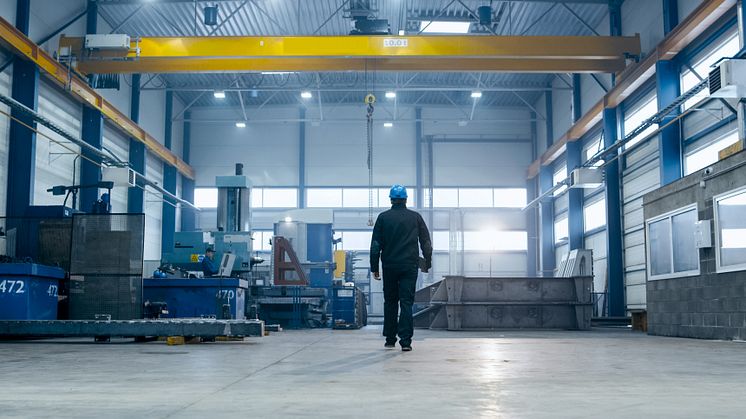
Press release -
Balancing between optimism and caution
The opportunities and challenges the metalworking industry is facing in 2023
In recent weeks, many companies have been looking to the new year of 2023 with mixed feelings. The coronavirus pandemic, which dominated the past two starts to the year and caused major restrictions, has faded in significance. Even China, which had, until recently, operated the strictest “no covid” strategy, has began easing restrictions. But the industry is still holding its breath.
The start of the war in Ukraine last February not only impacted business and production within the EU, but also across the entire world. Economists expect a difficult period ahead for the global economy.
Pricing pressure is on the rise and many companies are passing on the costs for raw materials and energy to end users. But prices for energy have risen less sharply than anticipated and despite gloomier forecasts, the EU Single Market has proven more stable than many experts initially assumed.
Challenges for 2023
At the start of a new year, the Global Risk Report containing forecasts for the year is released. The biggest challenges in 2023: Rising costs in all areas of life and business, climate change and shortage of resources.
But crises can either bring things to a standstill or drive innovation – an incentive for companies to look into and optimise their own production facilities.
According to a survey by Germany’s Mechanical and Plant Engineering Association (VDMA), 48% of decision-makers surveyed from the industry are behaving with optimism, with just 14% taking a pessimistic view of this year. But the challenges of 2023 vary for the different branches of the industry.
Order backlog in the metalworking industry
The current market situation has placed huge pressure on the metalworking industry, with no sign of easing within reach. More than anything, the shortage of materials and energy prices are hampering production and causing costs to skyrocket. According to a study by external auditing and consulting company PwC, one-third of decision-makers in plant and machinery construction view a decrease in margins as certain. In the past few months, many companies, especially in Europe, have seen a two-digit drop in orders compared to the previous year. But a proper crisis mood is yet to be felt in the industry. Many companies have built up a backlog of orders and are therefore only expecting a minor drop in production. However, how long this backlog will last ultimately depends on how the current situation develops.
Equipped for the future
Inflation, supply chains, sustainability – there are many aspects that determine the success or failure of the industry. The current economic situation and geopolitical circumstances only allow for clear predictions of the effects of 2023 on production to a limited extent. However, companies should look at these challenges as opportunities and use them to expand and modernise their in-house processes.
Budgets must be used wisely and new investments calculated with care.
To stay ahead of the competition in 2023 despite rising prices and supply chain problems, second-hand machines are a worthwhile investment. They are available in high quality for a lower price and are ready to be used in just a short time. Working together with experts like industrial auction house Surplex, companies can find the best machine to suit them and upgrade their production facilities with second-hand machines with the help of a competent, all-round service. This will enable companies to release the brakes ever so slightly.
About Surplex
Surplex is one of Europe’s leading industrial auction houses and trades worldwide in used machines and factory equipment. The 16-language auction platform Surplex.com is visited around 45 million times every year. It sells more than 55,000 industrial products per year in over 800 online auctions. The company is based in Düsseldorf and has offices in 15 European countries. Over 220 employees from 20 different nations generate an annual turnover of more than 100 million euros.

